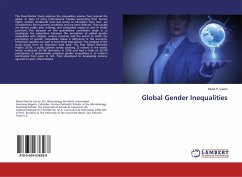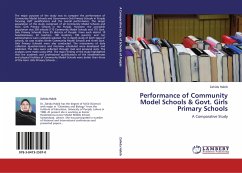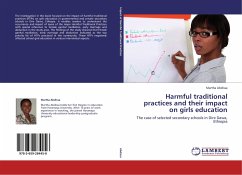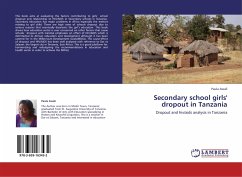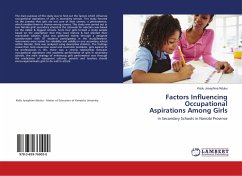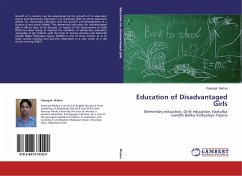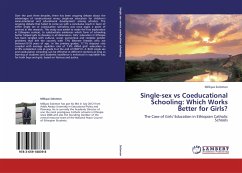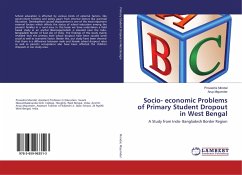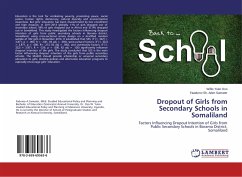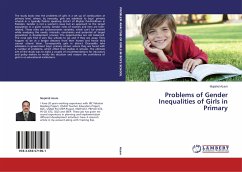
Problems of Gender Inequalities of Girls in Primary
Versandkostenfrei!
Versandfertig in 6-10 Tagen
47,99 €
inkl. MwSt.

PAYBACK Punkte
24 °P sammeln!
The study looks into the problems of girls in a set up of coeducation at primary level, where, by necessity, girls are admitted to boys' primary schools in a typically Pashto speaking district of Khyber PukhtinKhwa in Pakistan. Gender is not a women's issue but an approach to the target population in a given society. Gender roles of women and men are inter-related. These roles are socioeconomic variables, which can't be omitted while analyzing the needs, interests, constraints and potential of target population in development process. The opportunities are not balanced. The rural girls find it...
The study looks into the problems of girls in a set up of coeducation at primary level, where, by necessity, girls are admitted to boys' primary schools in a typically Pashto speaking district of Khyber PukhtinKhwa in Pakistan. Gender is not a women's issue but an approach to the target population in a given society. Gender roles of women and men are inter-related. These roles are socioeconomic variables, which can't be omitted while analyzing the needs, interests, constraints and potential of target population in development process. The opportunities are not balanced. The rural girls find it very few schools to go and if they are away. They happen to be at a longer distance from their homes and hence they cannot attend them. Consequently girls in district Charsadda take admission in government boys' primary school, where they are faced with a number of problems, which affect their studies in schools. The ultimate aim of the study was to make a couple of recommendations for educators and policy makers to rectify the situation and restore the confidence of girls in co-educational institutions.



